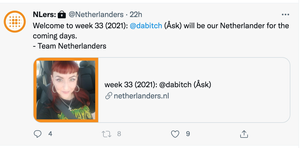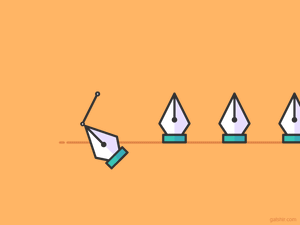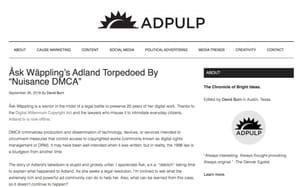The American Marketing association had this article "Marketinginginsights" magazine, called "A Marketer’s Guide to the Dark Web" where Zach Brooke explores the dark web, bitcoin, and "what's lurking beneath the surface web and how does that affect your brand?"
Good question indeed. Zach Brooke has hiw own website where he showcases this (pdf) and other articles that he has written.
The Mainstream Goes Dark
Just as the more problematic dark net sites are exiting the scene, some prominent mainstream services are entering. In October 2014, Facebook announced it had added a Dark Web version of its social network in order to circumvent problems caused when Tor users accessed their accounts through Facebook’s regular site. A spokeswoman for Facebook said the company was still in the process of evaluating dark net metrics and is not ready to publicize them.More recently, ProPublica made headlines when it announced in January that it would host a version of its news site on the dark net. Several reporters and news organizations already have a limited dark net presence—a smart move for organizations wanting to connect with whistle-blowers and political dissidents. But ProPublica’s announcement that it would host a .onion site is a step beyond what everyone else has done.
Source: Adland's Åsk Wäppling
Well, almost everyone. A few hours after ProPublica’s Dark Web announcement on Jan. 6, Adland, an advertising news and curation site, announced it had launched its own hidden service site, as well. “Adland’s target cares about privacy. We have two different types of readers. There are people who work in advertising, and then there are a lot of technical people like gamers who already have adblock installed,” says Adland founder Åsk Wäppling, when explaining why she decided to set up a .onion version of her site.
In fact, Wäppling portrays the Surface Web as the more dangerous place to surf. “The way ad networks are today are basically indistinguishable from malware. There’s a lot of third-party calls going on between the publication that you’re reading and the [tracker] on the publication,” she says.
Wäppling cares deeply about protecting her readers from malicious advertising and metadata collection. She notes that when Apple products made adblockers available, the number of Adland readers using those services skyrocketed 55%. Since tracking data via cookies or other metadata is hidden on the dark net, Wäppling sees the dark net as a turbocharged adblocker.
These sentiments were echoed by ProPublica news applications developer Mike Tigas, who said on a recent ProPublica podcast, (below) “I think it's a public service to give your readers these kinds of choices. It's a very conscious decision that we have to make as an organization to decide that we want to do this. I think we all agree that letting our users choose what types of metadata they leave behind is positive for us.”
Wäppling says the .onion version of Adland contains the same content that the Surface Web does, and that there are no extra costs to hosting a site on the Dark Web.Adland is also in the unique position of being able to generate revenue off of the Dark Web. Having switched over from an advertising-based business model to one based on donations, Adland can receive contributions on the Dark Web using PayPal. The site also accepts Bitcoins, a virtual currency that is the most popular form of payment on hidden services sites.
Wäppling predicts that more organizations with particularly privacy-attuned users will join Adland and ProPublica in offering .onion versions of their sites on the Dark Web. She also feels that she isn’t giving anything up by encouraging anonymous traffic.
“I’ve never really collected data from my users anyway,” she says. “That’s the thing, if you’re using somebody else’s ad network, the data collected doesn’t go to you as the site presenter, it goes to the ad network. So the data collected, which is infringing on my users’ privacy, isn’t giving me any knowledge …. But [a site’s presenters] carry the weight of all the hatred when a malware banner ad disrupts their readers.”





